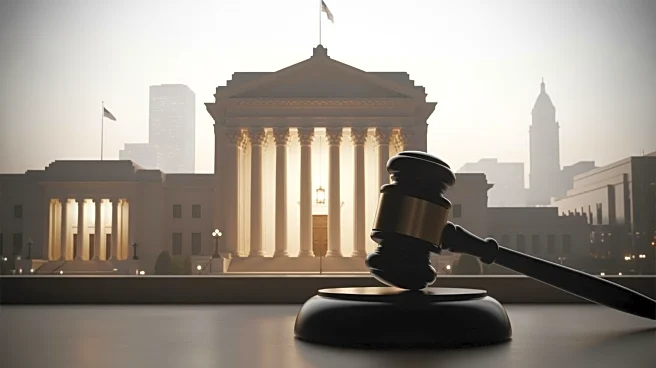What's Happening?
A federal judge has extended orders preventing President Trump from deploying National Guard troops to Portland, Oregon. Judge Karin Immergut, appointed by Trump, issued temporary restraining orders on October 4 and 5, barring the federalization and deployment
of Oregon National Guard troops, and subsequently, any National Guard troops from other states to Portland. The state of Oregon and the city of Portland argue that Trump's actions violate several laws and the 10th Amendment of the U.S. Constitution, which concerns the balance of state and federal power, particularly regarding policing authority within states. The federal government has not provided new evidence to justify the urgency of deploying troops to Portland, where protests have been generally small and peaceful. An expedited trial is scheduled for October 29, but a decision from the 9th Circuit Court of Appeals could potentially nullify the restraining orders.
Why It's Important?
This legal battle highlights the ongoing tension between state and federal authority, particularly in matters of law enforcement and military deployment. The outcome could set a precedent for the extent of presidential power over the National Guard and influence future federal interventions in state affairs. If the appellate court sides with the federal government, it could empower the president to deploy National Guard troops despite state objections, potentially affecting civil liberties and state sovereignty. Conversely, a decision favoring Oregon could reinforce state rights and limit federal overreach, impacting how similar situations are handled across the U.S.
What's Next?
The 9th Circuit Court of Appeals is expected to make a decision soon, which could either uphold or overturn Judge Immergut's restraining orders. If overturned, the federal government plans to request the dissolution of the restraining orders and the state's lawsuit within 48 hours. Oregon's legal team would then have 48 hours to respond. The appellate court's decision will be closely watched, as it could influence the balance of power between state and federal authorities in future cases.
Beyond the Headlines
The case raises broader questions about the role of the National Guard in domestic affairs and the ethical implications of deploying military forces in response to civil protests. It also touches on the legal complexities of federal intervention in state matters, potentially affecting long-term governance and civil rights in the U.S.















